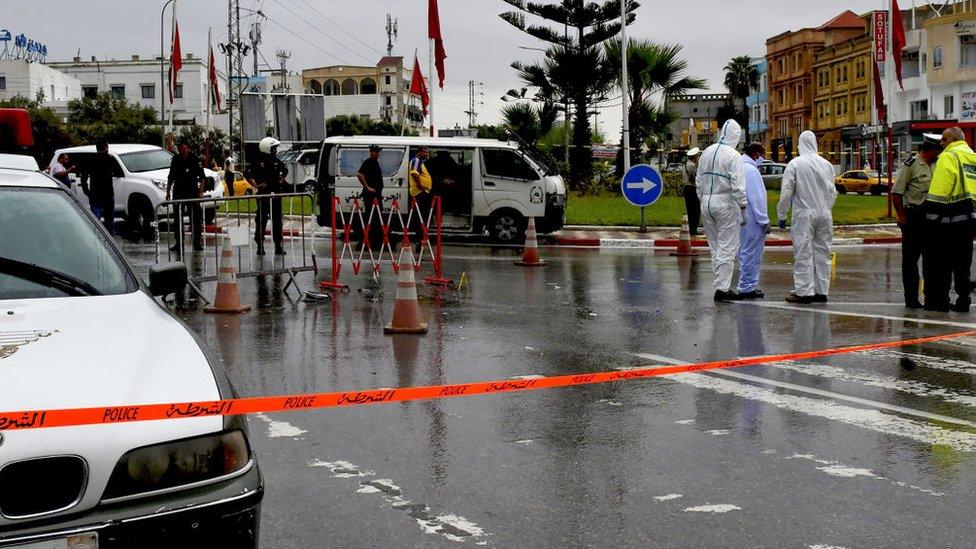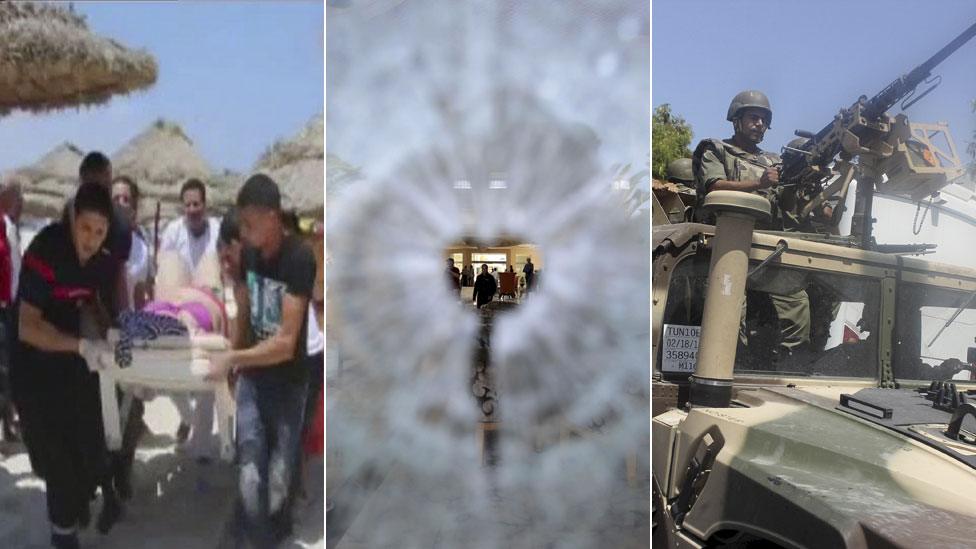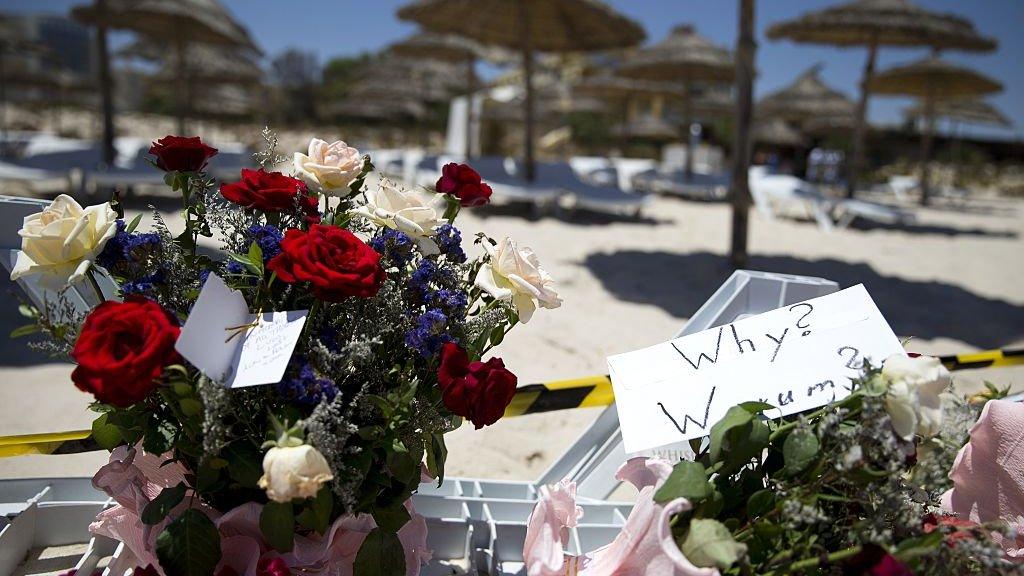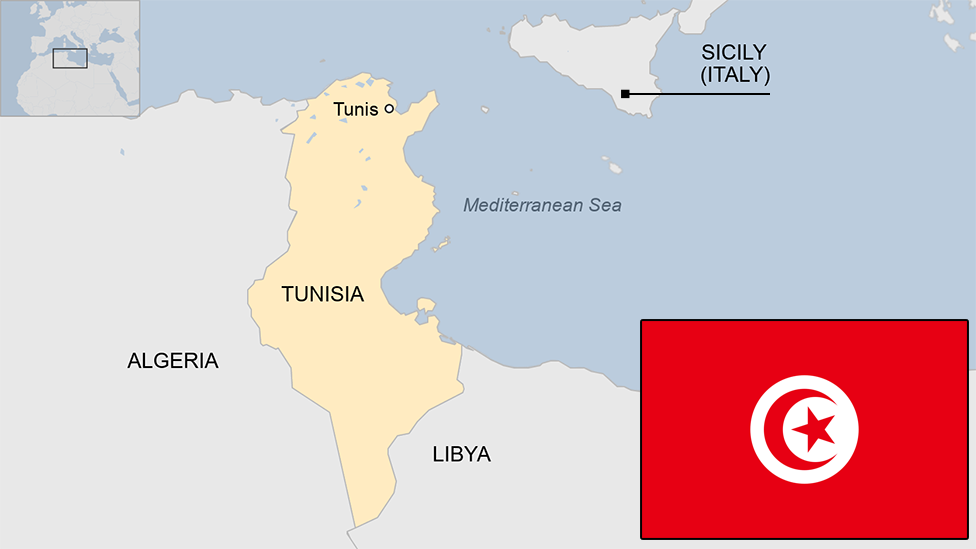Tunisia: Islamic State group claims Sousse knife attack
- Published

Seven suspects have been detained after the knife attack in Sousse
The Islamic State group (IS) says its fighters carried out Sunday's attack in Tunisia that saw one security officer killed and another injured.
Three of the attackers were shot dead, authorities say, and were wearing clothes bearing IS slogans.
Seven other suspects were detained.
The militants sent out a written statement by Telegram messenger app but gave no evidence to support their claim they were behind the attack on the coastal tourist town of Sousse.
Some 43 people were questioned, National Guard spokesman Houcem Eddine Jebabli reportedly told private station Radio Shems.
Among them was "the wife of one of the assailants, who described her husband as a 'martyr' during the interrogation," Mr Jebabli is quoted as saying.
In 2015 Sousse was the scene of one of Tunisia's worst attacks, when 38 people, most of them British tourists, were killed by a gunman.
This latest incident came two days after a new government was sworn in.
What happened?
The suspected militants rammed their vehicle into a National Guard checkpoint at a junction near the city's port on Sunday.
"A patrol of two National Guard officers was attacked with a knife in the centre of Sousse," National Guard spokesman Houcem Eddine Jebabli said, according to the AFP news agency.
"One died as a martyr and the other was wounded and is hospitalised," he said.
The knifemen stole guns and a police vehicle during the attack before making off, Mr Jebabli said. Security forces took off after them through the tourist areas of El Kantaoui.
"In a firefight three terrorists were killed," he said, adding that two guns and the car were recovered.
What is the situation in Tunisia?
The wider threat in Tunisia in recent years has been from dispersed sleeper cells composed of jihadists that returned from Syria, Libya, and Iraq, says the BBC's Rana Jawad in the capital Tunis.
Thirty-eight people died when a gunman opened fire on tourists staying in El Kantaoui in June 2015. Thirty of those killed were British tourists staying at the Hotel Rui Imperial Marhaba.
IS said it was behind the attack by Tunisian student Seifeddine Rezgui.
The situation in Tunisia has improved greatly since then, although a state of emergency is in place.
Since 2015, successive governments have changed their counter-terrorism strategy by focusing more on prevention, rather than response, our reporter says.
Countries like Germany and the UK have contributed to training security forces.
Last week Tunisia's parliament approved a new government formed by Prime Minister-designate Hichem Mechichi.
Mr Mechichi appointed technocrats to his government rather than members of political parties as had been the case in the past.
- Published1 February 2017

- Published9 February 2019

- Published9 October 2024
